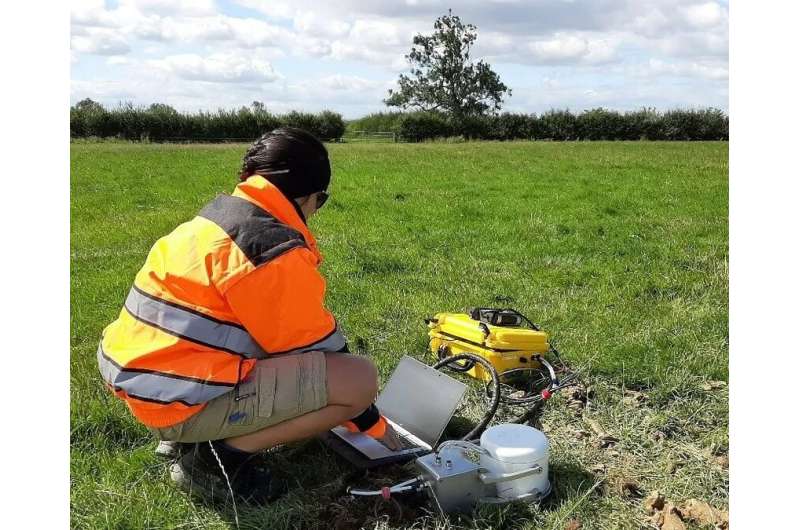#New study debunks theory that England’s decommissioned wells are leaking methane

Table of Contents
“New study debunks theory that England’s decommissioned wells are leaking methane”

There is no evidence to suggest that England’s decommissioned oil and gas wells are leaking methane into the environment, according to a new study by Heriot-Watt University.
Dr. Aaron Cahill from Heriot-Watt’s Lyell Center, a strategic partnership between Heriot-Watt and the British Geological Survey, says his findings, published in the International Journal of Greenhouse Gas Control, should be “reassuring” to the public and regulators.
There are more than 2,000 onshore oil and gas wells in England, about 1,700 of which have been decommissioned.
When decommissioned, the wells are plugged with cement, then cut and capped two meters below the ground and buried. The land is returned to use for grazing or farming. They are not typically checked afterwards for leakage.
A 2016 study by another university visited over 100 decommissioned wells in England. It suggested that 30 percent were leaking methane, a potent greenhouse gas, into their surrounding environment.
Cahill says his research brings these results into question. None of the wells he examined in more detail was leaking methane.
He also found the soil the wells were buried in would typically stop gas from escaping and potentially make it almost undetectable at the surface in any case.
Cahill said: “We revisited four of the wells that a previous study suggested were leaking, including those suggested as releasing the most methane.
“We drilled 1–2m holes to get closer to the wellhead, and used soil gas samples and a flux chamber to detect any methane and how much might be flowing into the soils and air. The previous study took measurements only at the surface.
“Our evaluation was much more intrusive and we got much closer to the wellhead, but found no evidence of methane leakage from the decommissioned wells.
“We also characterized the soil these wells are buried in. It’s mostly clay, which is prevalent across England.
“Gas and liquid don’t flow freely through clay-rich soils. So even if there were leaks, the clay forms a pretty effective barrier to stop methane escaping into the surrounding environment.
Cahill said just because there aren’t leaks now doesn’t mean there won’t be in the future.
“Decommissioned wells will be below our landscape for centuries to come. They might not be leaking now, but they could in future. In the U.S. and Canada, some wells have been found to be leaking.
“We need a standardized method of checking these wells for methane leaks and a plan for stewardship of this legacy infrastructure from our net positive past.
“Our more detailed approach would be a good starting point.”
“Methane is a powerful greenhouse gas and there are more than six million oil and gas wells worldwide. We need to understand what happens to them in the long term, including how many might leak, how much and why. At the minute we simply don’t know and will need to figure this out if we are to reach net zero.”
Inactive oil wells could be big source of methane emissions
Paula Sofia Gonzalez Samano et al, Constraining well integrity and propensity for fugitive gas migration in surficial soils at onshore decommissioned oil and gas well sites in England, International Journal of Greenhouse Gas Control (2022). DOI: 10.1016/j.ijggc.2022.103712
Citation:
New study debunks theory that England’s decommissioned wells are leaking methane (2022, June 24)
retrieved 24 June 2022
from https://phys.org/news/2022-06-debunks-theory-england-decommissioned-wells.html
This document is subject to copyright. Apart from any fair dealing for the purpose of private study or research, no
part may be reproduced without the written permission. The content is provided for information purposes only.
If you liked the article, do not forget to share it with your friends. Follow us on Google News too, click on the star and choose us from your favorites.
For forums sites go to Forum.BuradaBiliyorum.Com
If you want to read more Like this articles, you can visit our Science category.




